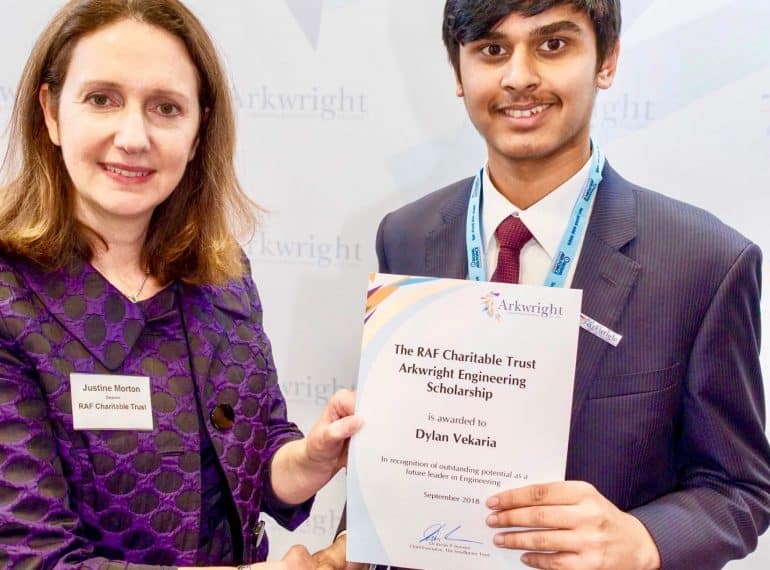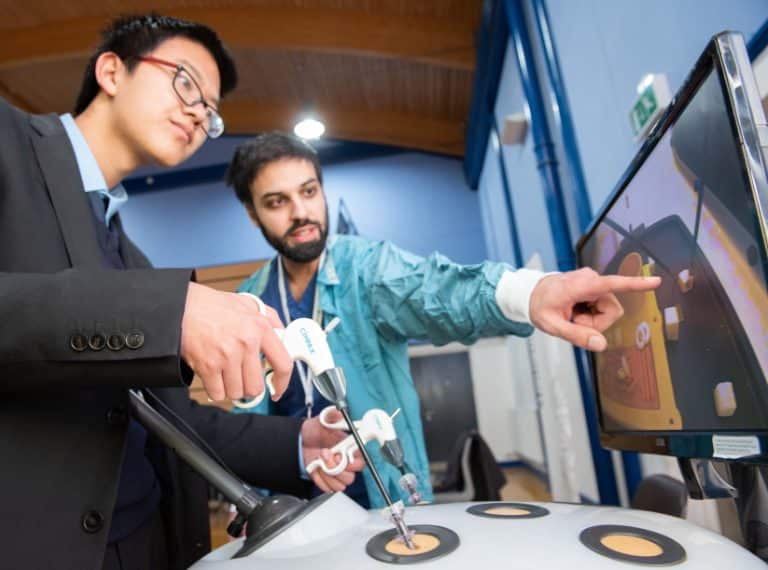
There was standing room only in several of the expert talks delivered as part of the 2019 Year 11 Careers Convention.
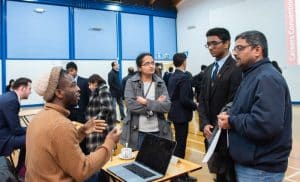 The convention – a major event in the QE calendar – this year featured an increased number of talks. The speakers for these were among representatives of 35 companies and organisations attending in total, including Old Elizabethans and other visitors.
The convention – a major event in the QE calendar – this year featured an increased number of talks. The speakers for these were among representatives of 35 companies and organisations attending in total, including Old Elizabethans and other visitors.
They came from professions ranging from medicine to app development, and from chemical engineering to the law.
All gave their time to meet boys and their families as Year 11 start to consider their future career paths.
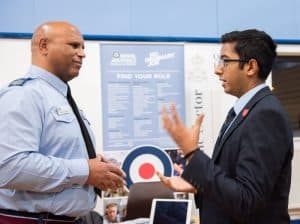 Headmaster Neil Enright said: “It was another tremendous evening. I am grateful to all those who helped our current pupils in this way, whether old boys or other friends of the School. The boys benefit immeasurably from the advice that they receive, not least because seeing alumni thriving in their various careers is in itself a source of inspiration and confidence to them.
Headmaster Neil Enright said: “It was another tremendous evening. I am grateful to all those who helped our current pupils in this way, whether old boys or other friends of the School. The boys benefit immeasurably from the advice that they receive, not least because seeing alumni thriving in their various careers is in itself a source of inspiration and confidence to them.
“At this stage in their education, it is as important for the boys to develop the soft skills they will need when planning for life after school – in order that they can actually achieve their desired outcomes – as it is to provide insight into the many different options available to them.”
The main Careers Convention was held in the Shearly Hall, while the nine talks – several of which were repeated three times during the course of the evening – were delivered in classrooms. The talks included:
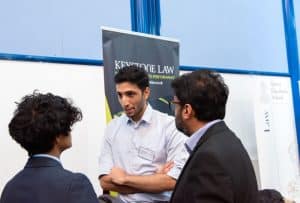 • Dental surgeon Dr Nirmal Wilwaraarachchi (OE 1996-2002) on dentistry
• Dental surgeon Dr Nirmal Wilwaraarachchi (OE 1996-2002) on dentistry
• Joseph Vinson (OE 2007-2013), an Associate Product Manager for US software firm, Granicus, on Getting a job in Tech
• Ramesh Pari (OE 1997-2004), who took up a senior role in engineering for online grocery company, Ocado, after more then a decade as an architect, on Architecture and its transferable skills.
Other talks were on general topics such as studying abroad and about choosing and progressing a career, such as the presentation by Kam Taj (OE 2004–2011) on How to find your ideal career.
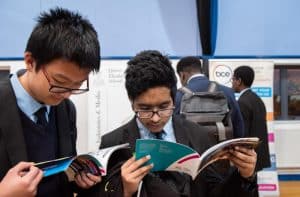 The evening also benefited from experts attending from organisations with which the School has strong partnerships, such as the National Citizen Service (whose summer programme is always popular with Year 11 boys), the STEM Ambassadors programme and the RAF.
The evening also benefited from experts attending from organisations with which the School has strong partnerships, such as the National Citizen Service (whose summer programme is always popular with Year 11 boys), the STEM Ambassadors programme and the RAF.
Alumni had a chance to catch up with each other at a reception hosted by the School before the event.

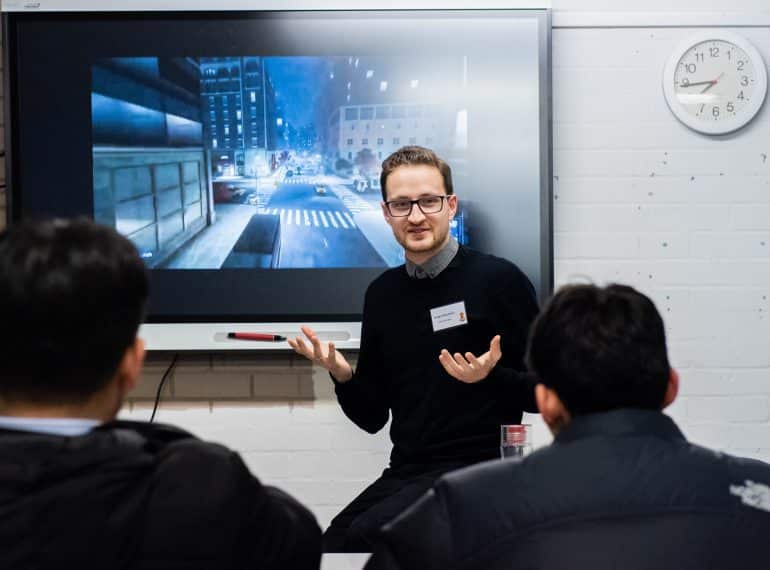
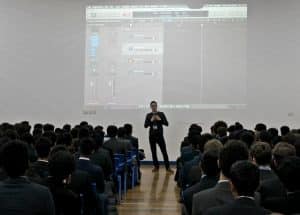 But, he told the boys, he had no regrets about his chosen path, since it had put him in control of what he was doing. He loves practising music six-to-eight hours a day as he finds it therapeutic and it gives him direction. He had been true to himself, his career giving him opportunities to learn from, helping him to mature and making him happy. “It’s more about the journey, rather than the end game. Every day I get a little bit better at something, I progress.
But, he told the boys, he had no regrets about his chosen path, since it had put him in control of what he was doing. He loves practising music six-to-eight hours a day as he finds it therapeutic and it gives him direction. He had been true to himself, his career giving him opportunities to learn from, helping him to mature and making him happy. “It’s more about the journey, rather than the end game. Every day I get a little bit better at something, I progress.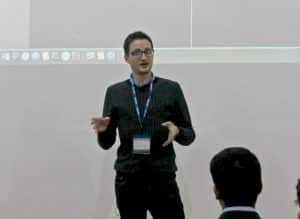 He is a regular supporter of the School and gave a presentation on sound design in video games at last year’s Year 11 Careers Convention.
He is a regular supporter of the School and gave a presentation on sound design in video games at last year’s Year 11 Careers Convention.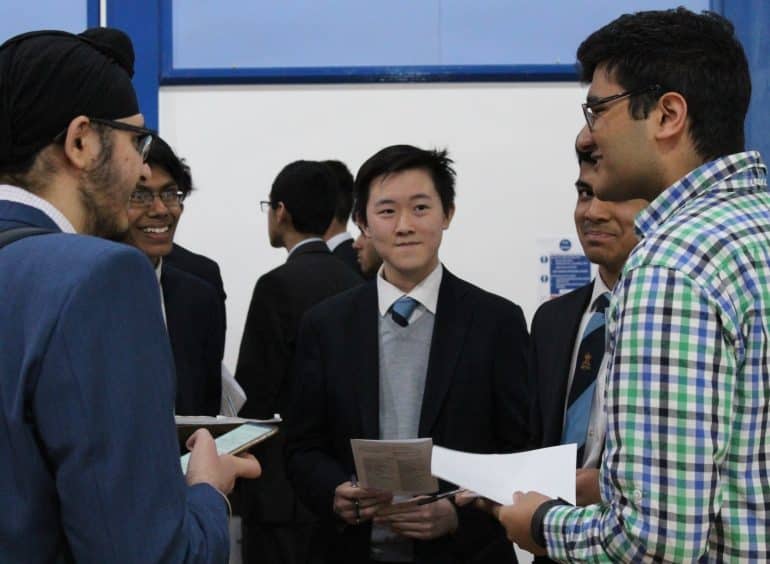
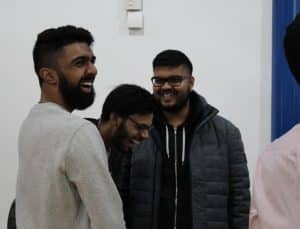 With fresh experience of university life, and with the Sixth Form and university application process such a recent memory, they were well-placed to give some first-hand advice to current Year 12 pupils.
With fresh experience of university life, and with the Sixth Form and university application process such a recent memory, they were well-placed to give some first-hand advice to current Year 12 pupils.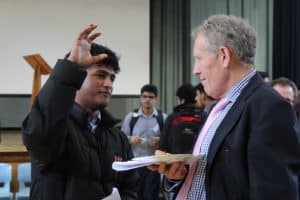 “Staff always enjoy the opportunity to hear how these recent leavers are getting on – even if it can sometimes be hard to recognise some, with their ‘civilian’ clothes, beards and new, non-QE-approved hairstyles!”
“Staff always enjoy the opportunity to hear how these recent leavers are getting on – even if it can sometimes be hard to recognise some, with their ‘civilian’ clothes, beards and new, non-QE-approved hairstyles!”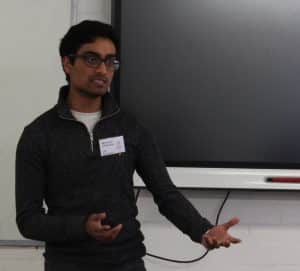 The Year 12 boys were encouraged to be quite specific with their questions to the alumni, asking, for example whether there was anything the students wished someone had told them before they applied.
The Year 12 boys were encouraged to be quite specific with their questions to the alumni, asking, for example whether there was anything the students wished someone had told them before they applied.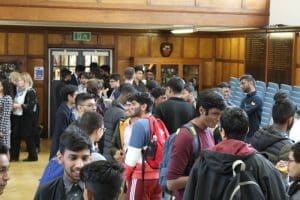 pursue after university, or what other paths they might want to take upon leaving the School.
pursue after university, or what other paths they might want to take upon leaving the School.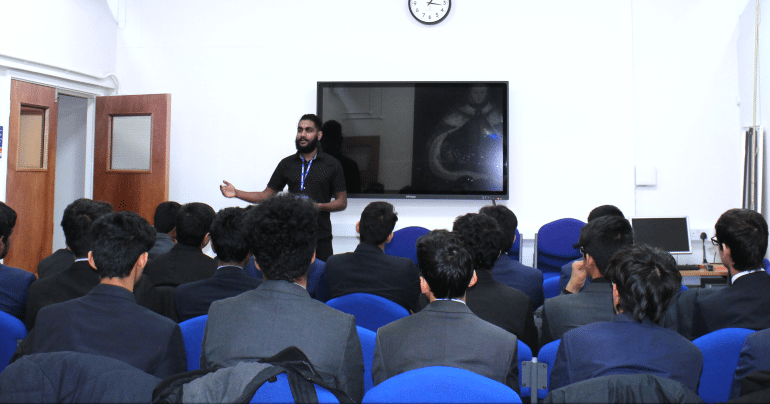
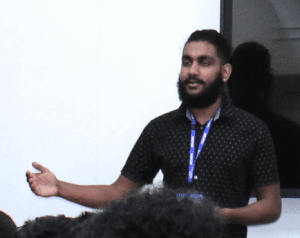 Valavan Ananthakumaraswamy OE (2009-2016), who chose to follow a mixed Liberal Arts programme for the first two years of his degree, told the current QE pupils that he had been particularly attracted by the wide range of subjects available through the US university system and by the closer relationships with professors.
Valavan Ananthakumaraswamy OE (2009-2016), who chose to follow a mixed Liberal Arts programme for the first two years of his degree, told the current QE pupils that he had been particularly attracted by the wide range of subjects available through the US university system and by the closer relationships with professors.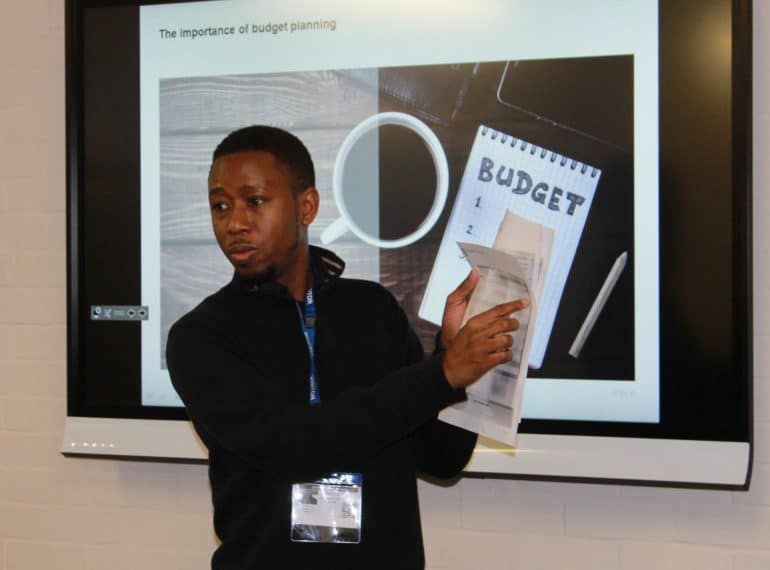
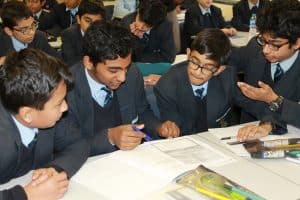 The exercise which saw them analysing a payslip to work out how much salary is deducted and for what purpose was particularly enjoyable, notwithstanding the shock it brought, Dr Westcott said. “Many of them expressed surprise at how much is taken before you even get paid!”
The exercise which saw them analysing a payslip to work out how much salary is deducted and for what purpose was particularly enjoyable, notwithstanding the shock it brought, Dr Westcott said. “Many of them expressed surprise at how much is taken before you even get paid!”